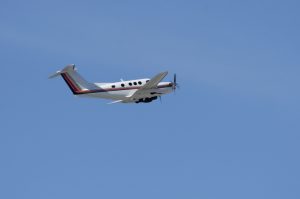Do you need a Degree to Become a Commercial Pilot?
Are you considering pursuing a career as a pilot and wondering, “Do you need a degree to become a commercial pilot?”
 The short answer is no, you don’t need a college degree to be a commercial pilot, but the more complex answer might be that it depends on the type of job you want to pursue as a commercial pilot. Speak with the team here at Paragon Flight to gain insight into the requirements and expectations for your career objectives and how we can help you meet them.
The short answer is no, you don’t need a college degree to be a commercial pilot, but the more complex answer might be that it depends on the type of job you want to pursue as a commercial pilot. Speak with the team here at Paragon Flight to gain insight into the requirements and expectations for your career objectives and how we can help you meet them.
At Paragon Flight, pilot candidates find a school that operates under Federal Aviation Regulations (FAR) Parts 61 and 141. Part 61 programs allow for flexible, one-on-one training designed around students’ needs. Part 141 programs are more rigidly structured but enable students from other countries to participate or use GI funds or traditional financing.
Because of this dual authorization, we can create a personalized program for the individual student. If you’re interested in pursuing aviation professionally, we can help you get there. The P3 Professional Pilot Program is specifically designed to help pilots become professionals with an accelerated time frame and a smaller budget.
Paragon Flight’s goal is always to create safe and ready pilots. Our success is evident in the students who return to learn with us year after year and the number of awards we’ve received from the AOPA, or Aircraft Owners and Pilots Association.
Paragon Flight’s Stand-Out Features
- Locations – all with great weather and environment for flight:
- Page Field (FMY) in Fort Myers, FL
- Punta Gorda Airport (PGD) in Punta Gorda, FL
- LaGrange-Callaway Airport (LGC) in LaGrange, GA
- Training aircraft – all Technically Advanced Aircraft (TAA) with Glass Cockpit technology and advanced avionics:
- Piper PA28 “Pilot” – single-engine flight training
- PA-44 Seminole – multi-engine flight training
- Cirrus SR20 – primary flight instruction, high-performance endorsements, transition/differences training, aircraft rental
- ALSIM Flight Simulator is a super realistic simulator for less expensive training.
- Curriculum – The Jeppesen curriculum, developed by a subsidiary of Boeing, has been proven to produce prepared pilots 30% faster than the national average. It includes all software and hard-copy manuals.
- Flight instructors – our staff includes some of the best fight instructors in the country, with diverse backgrounds and experiences.
Consider the P3 Professional Pilot Program
P3 Timeline
- 0-10 Weeks – Private Pilot License (PPL) – foundational phase of training that supplies best practices and good habits for all pilot endeavors
- 11-18 Weeks – Instrument Flight Rating (IFR) – a phase that trains pilots to utilize the communication and navigation systems of an aircraft and allows pilots to fly in non-visual condition
- 19-30 Weeks – Commercial Pilot License, Single Engine and Multi-Engine (CSEL and CMEL) – mastery level training for pilots to perform professionally as the operator of a single-engine and multi-engine aircraft
- 31-38 Weeks – Certified Flight Instructor (CFI) – final phase of this program that provides an entry point for professional pilots where they can make a living while continuing to accumulate flight hours.
Once you have a commercial license with multi-engine privileges, you’ll be on your way to earning an Airline Transport Pilot (ATP) certification and the 1,500 flight hours required to apply with an airline. To participate in the P3 program and to use it with most airlines, you need only a high school diploma or GED, with some college preferred but not required.
Click here to design a program that allows you to become a commercial pilot with Paragon Flight, and you do not need a degree to do so. If you prefer to pursue a degree with hopes of bettering your career potential, we can help with that as well.
